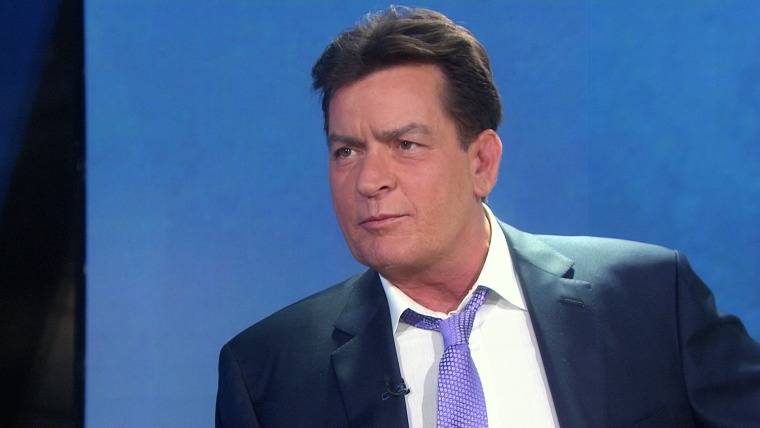Charlie Sheen revealed Tuesday that he’s been infected with HIV for at least four years, but that he started treatment as soon as he found out.
Sheen told NBC's Matt Lauer that it’s “impossible” he could have infected anybody else. But is that true?
“I meant through protected sex,” Sheen clarified later.
Public health officials say even with drug treatment, the best way to protect others from catching HIV is for infected people to use condoms.
His physician, Dr. Robert Huizenga, confirmed that Sheen’s virus is at undetectable levels in his blood.
“He was immediately put on treatment, strong antiviral drugs which have suppressed the virus,” Huizenga, an assistant professor of clinical medicine at UCLA, said on TODAY.
“He was immediately put on treatment, strong antiviral drugs which have suppressed the virus."
Studies have shown that when people take strong cocktails of HIV drugs, they are far less likely to infect someone else. But the odds are not zero.
There’s no cure for the human immunodeficiency virus that causes AIDS. The multiple drug combinations that suppress the virus don’t kill it. They just stop it from replicating, and the virus hides out in the body in what are called reservoirs.
If people stop taking the drugs, or if something else interferes with how their bodies absorb the drugs, the virus can come back.
The blood tests, which Huizenga said he’s done regularly on Sheen, just look at the blood.
"A person with HIV can still potentially transmit HIV to a partner even if they have an undetectable viral load, because HIV may still be found in genital fluids (e.g., semen, vaginal fluids)," the National Institute for Allergy and Infectious Diseases says.
Huizenga confirmed he’s told Sheen this.
“Individuals who are optimally treated with undetectable viral loads … it’s incredibly rare to transmit the virus,” Huizenga said. “We can’t say that that’s zero, but it’s a very, very low level.”
Public health experts still advise very strongly that people with HIV use condoms every time they have sex.
“We’re petrified about Charlie. We’re so, so anxious that if was overly depressed…he would forget these pills."
Another way to protect sex partners is for them to take HIV drugs, too. A study published Monday shows that when people take the drugs, they’re far less likely to catch the virus from infected sex partners.
Sheen confirmed he’s had sex since his diagnosis.
“Yes. But the two people that I did that with were under the care of my doctor and were completely aware ahead of time,” he told Lauer.
Sheen said he has taken his medication consistently — four pills a day.
It’s easy to forget, and if people don’t take their drugs on time, the virus can not only come back, but it can develop what’s known as resistance. That means the drugs don’t work as effectively, and patients have to move to different mixtures of the drugs to control it.
“We’re petrified about Charlie. We’re so, so anxious that if was overly depressed … he would forget these pills,” Huizenga said.
So far, that doesn’t seem to have happened. Sheen said he’s been anxious about people who blackmailed him, threatening to reveal his HIV status. He said media reports have falsely accused him of intentionally spreading the virus.
“I thought, ‘Wow, that’s as far from the truth as it can be,'” Sheen told Lauer..
He admitted he’s taken mood-altering drugs and turned to alcohol.
“Somehow, In the midst of incredible personal mayhem, he’s managed to continue to take these medications,” Huizenga said.

